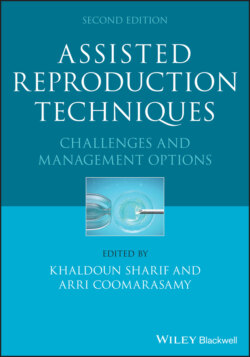Читать книгу Assisted Reproduction Techniques - Группа авторов - Страница 86
Pregnancy and SLE
ОглавлениеA strict clinical, serological and laboratory follow‐up is mandatory during pregnancy to recognize early the signs of disease flare or pregnancy complications. The evaluation should include physical examination, with particular attention to blood pressure monitoring, and regular blood tests including blood count, renal and hepatic function, urine analysis and anti‐dsDNA and complement. Furthermore, pregnant women with SLE and/or APS, in addition to routine controls, should undergo supplementary ultrasound surveillance in the second and third trimester in order to early diagnose fetal growth restriction and abnormal Doppler patterns. Special monitoring with fetal echocardiography is required in women with anti‐Ro/SSA and/or anti‐La/SSB antibodies. The most serious complication associated with the presence of these antibodies is complete fetal heart block (CHB), which occurs in about 2% of women with no previous CHB. The recurrence rate of CHB in women with a previously affected child is 16%. These patients should have a weekly fetal monitoring between 16 and 26 weeks of gestation [15].
Obstetric outcomes in SLE patients are characterized by increased risk of complications related to placental insufficiency, including miscarriage, intrauterine fetal death, hypertension, preeclampsia, intrauterine growth restriction, low birth weight and preterm delivery [16].
In the Case History, a complete clinical and laboratory monitoring was performed before starting ovarian stimulation. Because of her serological profile, with aPL positivity, and her previous obstetric history, the patient was considered to be at increased risk for complications and was closely monitored during pregnancy and the postpartum period, which is critical for SLE flares.
In conclusion, ovarian stimulation in SLE and/or APS women seems to be effective and generally safe if the disease is in clinical remission and adequate prophylactic anticoagulant or anti‐inflammatory therapy is administered. Only in specific conditions such as active SLE, renal failure, heart disease and major previous thrombotic events infertility treatments have to be discouraged, due to the high risk of complications for both mother and fetus during pregnancy and puerperium.
